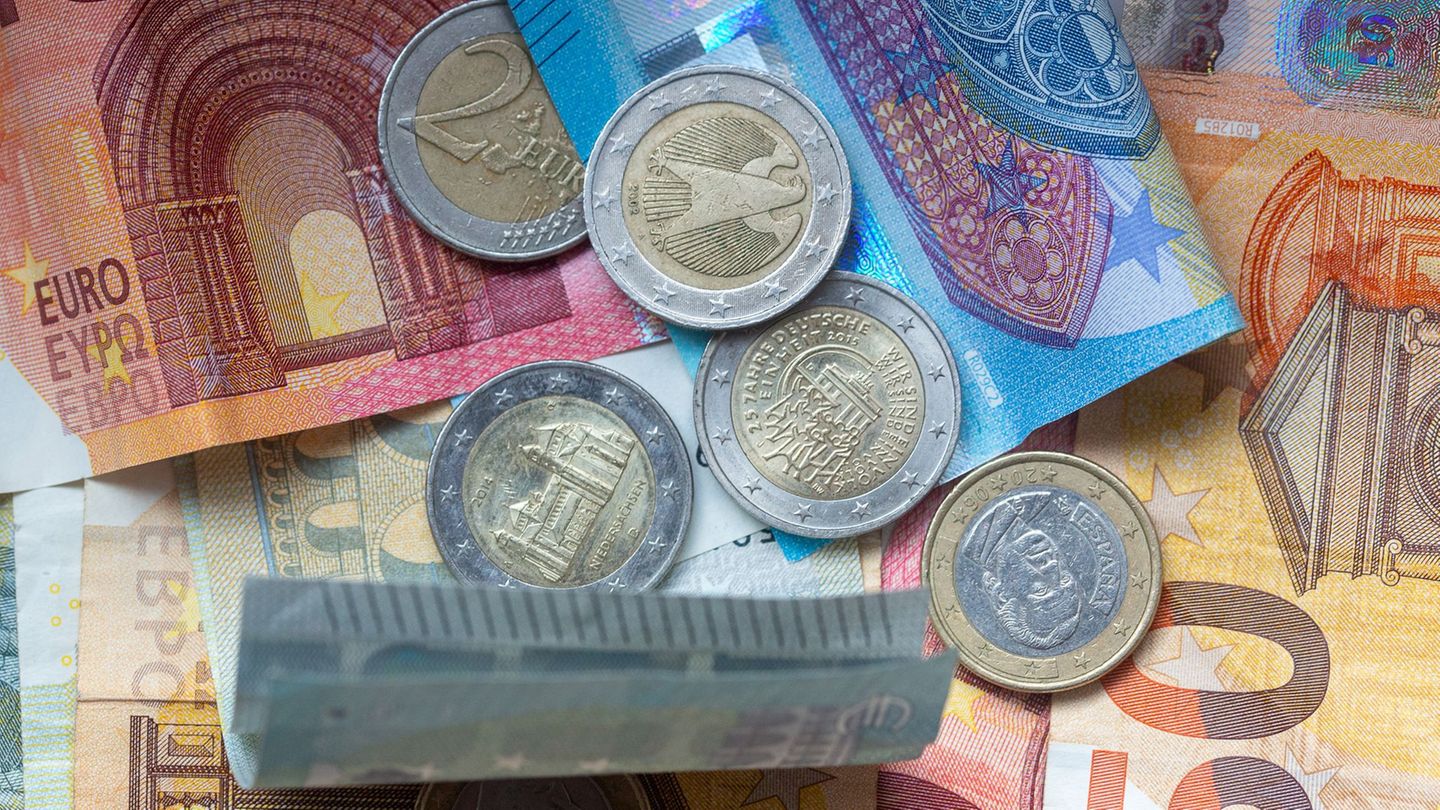After the collapse of two US institutes and the latest props for Credit Suisse, the financial world has not come to a rest. In the USA, the next bank already needs help. The chancellor reassures.
The turbulence in the financial sector is not abating: the billions in support package for the ailing Credit Suisse in Europe was followed on Thursday by a concerted aid campaign for another struggling bank in the USA. In the face of liquidity concerns and severe price losses on the stock exchange, the regional bank First Republic receives a financial injection worth billions from the largest US financial institutions. The measure is “highly welcomed” and demonstrates the resilience of the banking system, according to a statement from the Treasury Department and the Federal Reserve.
After the collapse of the Silicon Valley Bank and the turbulence surrounding Credit Suisse, Chancellor Olaf Scholz (SPD) sees no new financial crisis in Germany and Europe. “I don’t see the danger. The monetary system is no longer as fragile as it was before the financial crisis,” the Chancellor told the “Handelsblatt” according to a report published on Thursday. He therefore does not expect any consequences for German savers. The deposits are safe. “We live in a completely different time,” Scholz said, referring to comparisons with the 2008 financial crisis.
Eleven major US banks support regional bank First Republic
In the US, eleven major banks – including industry leaders JPMorgan Chase, Bank of America, Citigroup, Wells Fargo, Goldman Sachs and Morgan Stanley – are said to have sold the troubled First Republic Bank with uninsured deposits totaling $30 billion (28 billion euros) assist. Unlike the Silicon Valley Bank in California and the Signature Bank in New York, which were closed down by supervisors in the past few days and placed under state control, the banking industry initially intervened here itself. However, the authorities are likely to have exerted a lot of pressure.
The US government has been trying for days to ease the situation – so far there has been limited success. After the collapse of the start-up financier Silicon Valley Bank – the largest collapse of a US money house since the financial crisis of 2008 – the US government tried to calm the nerves of bank customers in the country with a far-reaching deposit guarantee over the weekend. At a congressional hearing in Washington on Thursday, Treasury Secretary Janet Yellen reiterated that the banking system remains stable and secure and there is no need to worry about deposits. “The government has taken decisive and vigorous action,” Yellen said.
But despite the courageous intervention, nervousness on the stock exchanges remained high. The crisis at the major bank Credit Suisse also contributed to this, to which the Swiss National Bank provided an aid package in the form of loans of up to CHF 50 billion (almost EUR 51 billion), according to a statement on Thursday morning. This initially calmed down somewhat for Credit Suisse shareholders and the European banking sector, but things remained turbulent on the US stock exchanges. First Republic Bank shares tumbled another 30 percent at one point. Thanks to the relief effort, they ultimately closed ten percent up, but after trading it went downhill again.
Citigroup: Underscore confidence in US financial system
The financial injection from the major US banks is intended to provide First Republic with liquidity and underline confidence in the US financial system, Citigroup said. Specifically, the largest US money houses JPMorgan, Bank of America, Citigroup and Wells Fargo are involved with 5 billion dollars each. The big investment banks Goldman Sachs and Morgan Stanley each contribute $2.5 billion, smaller banks like BNY Mellon, PNC and US Bancorp a billion each. The support reflects confidence in First Republic and in the US banking system as a whole, Citi said in the statement.
How tense the situation in the US banking sector was recently was shown on Thursday by data from the central bank. In the seven days ended March 15, the Fed issued a record $152.85 billion to financial institutions through its emergency liquidity program, dubbed the discount window. This surpassed the previous high of $111 billion from the 2008 financial crisis. For comparison, the previous week, the banks had drawn just $4.58 billion from the discount window. An additional $11.9 billion flowed from the Bank Term Funding Program set up by the Fed on Sunday, where banks anonymously receive loans on particularly favorable terms.
Deutsche Bank, Tom Tailor and Co.
These are the ten worst German stock market flops of the year
The First Republic Bank is one of a number of regional US money houses that came under severe pressure on the stock market after the collapse of the Silicon Valley Bank. Most recently, the institute was downgraded by rating agencies because of liquidity and financing risks. The Silicon Valley Bank, which specializes in financing start-ups, was closed on Friday after huge withdrawals of funds and taken over by the US deposit insurance. On Sunday, the financial authorities also closed the Signature Bank in New York – another US money house that suddenly stumbled. The voluntary liquidation of the US crypto bank Silvergate Capital had already unsettled the stock markets on Thursday.
Source: Stern




